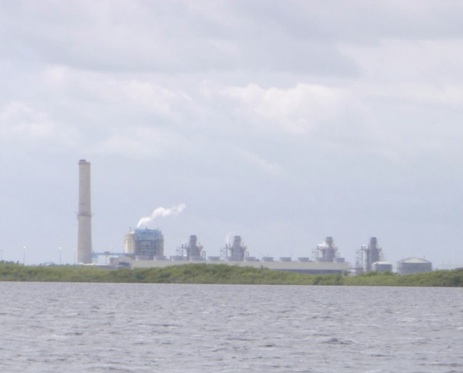With so much in the news lately, you might have missed these three recent, major victories in the effort to move America beyond coal, so I wanted to share them with you:
Illinois: Last week Governor Pat Quinn vetoed two bills that would have put natural gas customers on the hook for two new coal plants that would turn coal into a synthetic form of natural gas, proposed by Leucaida and Power Holdings. The Sierra Club and our allies have been working hard to stop these two dirty and polluting projects (the photo is of a Sierra Club protest of the projects from earlier this month).
The extra costs would have been passed on to people via their home heating bills, costing consumers as much as $191 more a year to heat their homes beginning around 2015 and continuing for roughly two decades.
“Our investments in clean coal must not come at the expense of consumers,” said Quinn, who sided with environmental and community groups and the Citizens Utility Board, a consumer advocacy group he co-founded.
Sierra Club organizers worked with residents from the Southeast Side of Chicago, and joined with consumer groups to flood the Governor’s office with letters asking for a veto.
Washington: We dealt a major blow to a massive proposed West Coast port designed to export American coal to Asia. Millennium, the company that was proposing to export as much at 80 tons of coal a year from the Powder River Basin through a terminal in Longview, Washington, to dirty coal-fired power plants in China and India, withdrew its permit application for the project.
The whole project had been very shady. Shortly before the application withdrawal, an investigation found that while company officials assured county commissioners and community members that the terminal would handle five million tons of coal per year, in their permit application, internally, company officials were prepping for a facility that would export up to 80 million tons of coal to China. This duplicity outraged the local community, and now the company has retreated.
This withdrawal is not a complete victory, as the company will likely resubmit its application, but it is an exciting win for the coalition of local residents and organizations that have been working to stop this bad idea from becoming a reality.
Maryland, Virginia, and West Virginia: Earlier this month we celebrated the great decision to suspend the proposed a major new power line designed to ship coal power across the wires from the coal plants Ohio Valley to the cities of the Northeast.
The Potomac Appalachian Transmission Highline, or PATH, was a $2 billion proposal to build a 275-mile long 765-kV transmission line starting at the John Amos coal-fired power plant in West Virginia, and would then go through West Virginia, Virginia, and Maryland.
State officials suspended the PATH project in order to further analyze its potential need. The Sierra Club had long opposed this planned transmission line, repeatedly telling the states that this transmission line was not needed. We had worked hard with allies and local residents for years to defeat the project. My colleague Sarah Hodgdon has an excellent column on the decision.
While there is much more work to be done to transition from coal to clean energy, this good news bolsters us along the way – as do articles like this one, about green job growth taking hold in my home state of Tennessee.


